Climate Change and the Environment
Drawing on our expertise in environmental sciences and through our transnational partnerships, A&S faculty and students are driving new solutions to extreme weather events, food insecurity and public health crises. We also work to translate the science into actionable knowledge and practical policies to support resiliency and adaptation locally and around the globe.
Related News Stories

(Feb. 19, 2026)
Bold New Strategic Plan Energizes A&SThe College of Arts and Sciences’ new Academic Strategic Plan is already inspiring partnerships, creative ideas and a more focused commitment to shaping a healthier future for people and planet.

(Feb. 16, 2026)
From Studying Earth to Saving ItEarth and environmental sciences alumni are tackling climate change, sustainability and environmental policy across the globe.
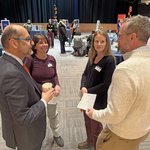
(Feb. 13, 2026)
A&S Faculty Come Together to Launch ASPThe College of Arts and Sciences hosted an interactive kickoff event for faculty to explore the plan’s pillars, offer feedback and help shape its implementation.
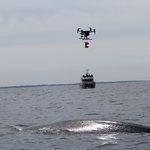
(Jan. 15, 2026)
Mapping Meals to Protect WhalesAn A&S researcher is working to develop models to predict whale behavior and prevent ship collisions.
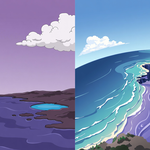
(Jan. 13, 2026)
When Tropical Oceans Were Oxygen OasesResearch reveals when and why ancient tropical seas transitioned from oxygen oases to marine dead zones, providing clues to the long-term evolution of oceanic environments.
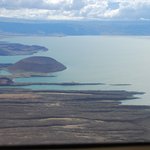
(Nov. 10, 2025)
Climate’s Impact on EarthquakesNew research from scientists at Syracuse University and the University of Auckland highlights the connections between climate, tectonics and human evolution.
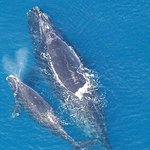
(Nov. 4, 2025)
Biology Professor Discusses Whale Whispering on PodcastA Syracuse University expert on marine mammal communication was a guest on The Decibel podcast talking about the vocalization of North Atlantic right whales.

(Oct. 23, 2025)
Leading Global Climate PolicyA&S scholar joins UNESCO and UNCCD Science-Policy Interface (SPI) teams to shape international environmental decision-making through Indigenous knowledge.
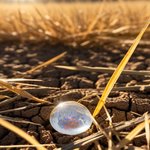
(Oct. 2, 2025)
Yeast Proteins Reveal Mysteries of Drought ResistanceSome proteins can survive drying out, returning to function when water is re-introduced. Revealing the chemical rules behind this ability could lead to longer-lasting medicines and drought resistant crops.

(Sept. 25, 2025)
How Forests Sparked Deep-Sea LifeAbout 390 million years ago, Earth’s deep oceans filled with oxygen, turning them into homes for diverse marine life. The first forests on land drove this transformation, releasing both oxygen and nutrients to the sea.

(Sept. 23, 2025)
Secrets Beneath Greenland’s IceWhat lies beneath the surface of the Greenland Ice Sheet may hold the key to understanding one of the most pressing climate challenges of our time: sea-level rise.
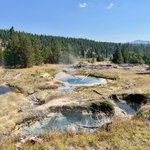
(Sept. 23, 2025)
Microbial Details in Hot SpringsA&S biology professor Angela Oliverio receives NSF and NASA grants to study how microorganisms survive and thrive in some of the world’s most extreme environments.
